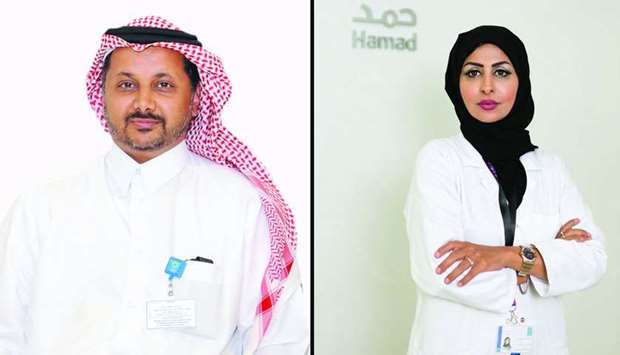Dorsal Column Stimulator is a type of implantable device — sometimes referred to as a pain pacemaker — that is used to send electrical signals to select areas of the spinal cord for the treatment of certain pain conditions.
This surgical technique is often used for patients who have a chronic pain condition that has not responded to more conservative therapies.
“Today’s procedure is a first for Qatar and demonstrates HMC’s commitment to delivering the best possible care to patients through the introduction of new and innovative techniques,’’ said Dr Wafa al-Yazeedi, chairperson of QRI and one of the lead clinicians involved in the surgical procedure.
The Dorsal Column Stimulator procedure involves inserting a temporarily implanted electrode, called a trial.
This delivers electricity to areas of the spinal cord in order to relieve pain.
“By inserting an electrical implant, the patient is able to control the frequency of the electrical impulses via a remote control,’’ added Dr al-Yazeedi.
The two patients who underwent the Dorsal Column Stimulator procedure both suffered from chronic pain that had not responded to previous treatment methods.
“Following the procedure, the patients were discharged to return home. They returned to HMC one-week post-procedure to be assessed by our clinical teams. This assessment reviewed the success of the pain management and the intensity of the electrical impulses delivered due to the Dorsal Column Stimulator and allowed us to then insert a permanent electrode,’’ explained Dr Ghanem al-Sulati, head of Neurosurgery at HMC.
The QRI has provided world-class care to patients during more than 50,000 outpatient appointments since opening its first clinics in December 2016.
Throughout 2017, the range of services provided by teams at the QRI has continued to expand, including the start of inpatient care in March.
By December, more than 10,000 outpatient visits were being recorded each month.

Dr Ghanem al-Sulati (L), Dr Wafa al-Yazeedi
A surgical team comprising members from Hamad Medical Corporation’s (HMC) new Qatar Rehabilitation Institute and HMC’s Neurology Department, has performed the Dorsal Column Stimulator, a pioneering pain management surgical procedure on two patients in Hamad General Hospital’s state-of-the-art operating theatre facility.
